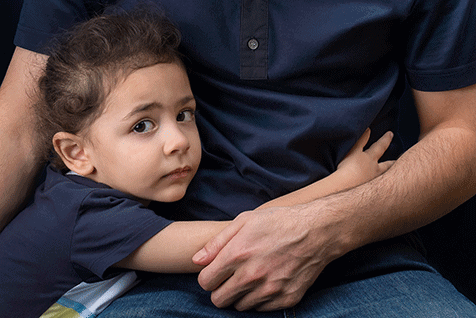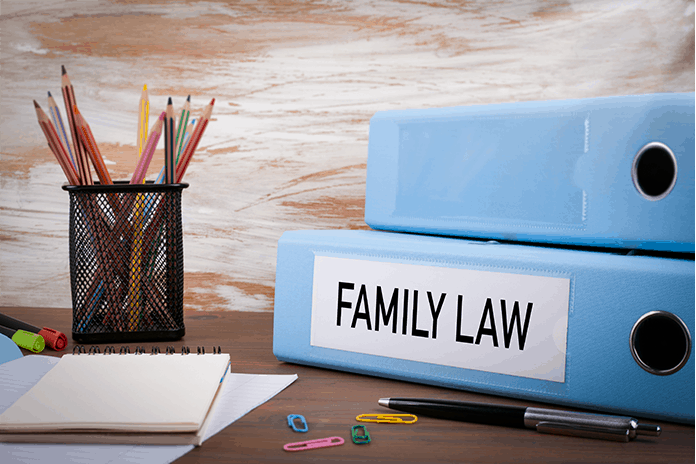Life is unpredictable, and sometimes, it throws us curveballs that we’re not prepared to catch. One such curveball is the death of a custodial parent, a situation that can leave a child’s world spinning.
In such a delicate situation, understanding the legal landscape of child custody in New Jersey becomes crucial.
This article aims to provide a comprehensive understanding of how child custody works when the custodial parent dies in New Jersey, ensuring you’re equipped with the knowledge to navigate this challenging terrain.
Understanding Custodial Arrangements in New Jersey
In New Jersey, child custody arrangements are carefully crafted to ensure the best interests of the child are met.
These arrangements include decisions about who has the legal right to make choices regarding the child’s upbringing, such as their medical care, religious upbringing, and education.
The parent with whom the child spends the majority of their time is referred to as the custodial parent. But what happens when the custodial parent dies? Does custody automatically transfer to the non-custodial parent?
Read more about the types of child custody in NJ right here…
When the Custodial Parent Dies: The Presumption
In New Jersey, when a custodial parent dies, there’s a presumption that the living biological parent assumes custody. This presumption is rooted in the Fourteenth Amendment rights of the biological parent and their right to privacy. However, this presumption can be challenged under certain circumstances.
Challenging the Presumption: The Watkins v. Nelson Case
The NJ Supreme Court Case, Watkins v. Nelson 163 N.J. 235 (2000), set a precedent in New Jersey family law when it came to child custody.
In Watkins, The New Jersey Supreme Court ruled that the surviving, non-custodial biological parent has a right to custody that supersedes the best interests clause. Unless there is proof of gross misconduct, abandonment, unfitness, or the existence of ‘exceptional circumstances.’
This means that the biological parent’s right to custody outweighs other measures for the child’s best interests except in extenuating circumstances.
When Both Biological Parents Are Deceased: Navigating Child Custody
In the unfortunate event that both biological parents are deceased, the question of who will assume custody of the child becomes more complex. In such cases, the court will again prioritize the best interests of the child when determining who should assume custody.
Appointing a Legal Guardian
Typically, if both parents are deceased, a legal guardian will be appointed for the child. This could be a person named in the parents’ wills, if such a provision was made. However, the court will review this appointment to ensure that it still serves the child’s best interests at the time of the parents’ death.
Third-Party Custody Requests
In certain circumstances, a non-parental figure, such as a grandparent, the deceased parent’s new spouse, or another close family member or friend, may feel compelled to step forward and seek custody of the child. This typically happens when the surviving biological parent is unable, unwilling, or deemed unfit to assume full custody, or in the unfortunate event of both parents’ demise.
This process, known as a third-party custody request, is a legal avenue that allows non-parental figures to petition the court for custody rights.
However, it’s important to understand that this is not a simple or straightforward process. The courts in New Jersey place a high priority on the rights of biological parents, and a third-party seeking custody faces a significant legal hurdle.
The third-party petitioner must convincingly demonstrate to the court that granting them custody is in the child’s best interests. This involves more than just showing a loving relationship or a close bond with the child. The court requires substantial evidence that the surviving parent is unfit or that they have abandoned, neglected, or abused the child.
The burden of proof in these cases rests heavily on the third-party petitioner.
They must provide clear and compelling evidence that the child’s welfare would be at risk if left in the care of the surviving parent. This could include evidence of substance abuse, mental health issues, a history of violence, or other factors that could endanger the child’s physical or emotional well-being.
Remember, the court’s primary concern is always the child’s best interests. While these situations can be emotionally charged and complex, the guiding principle in any custody decision is the welfare and well-being of the child. As such, third-party custody requests are carefully scrutinized to ensure that the child’s safety, stability, and overall happiness are at the forefront of any custody determination.
Guardian ad Litem: A Child’s Advocate
In the complex world of child custody, a figure known as a ‘guardian ad litem’ plays a crucial role.
Appointed by the Court at their discretion, this individual is a neutral third party, stepping into the legal arena with the sole purpose of advocating for the child’s best interests. Their role is akin to a trusted advisor, ensuring the child’s voice is heard and their needs are prioritized in the court’s decisions.
The guardian ad litem is not just a passive observer. They have the power to challenge custody arrangements in the Superior Court if they believe it’s in the child’s best interests. For instance, if a biological parent or another third party is seeking custody after the custodial parent’s death, the guardian ad litem can contest this. Their goal is not to favor one party over another, but to ensure the child’s welfare is at the forefront of all decisions.
This role is particularly important in situations where the child’s well-being may be at risk. If there are concerns about the suitability of the biological parent or another third party seeking custody, the guardian ad litem can raise these issues in court. They are the child’s champion, fighting for a custody arrangement that will provide the child with stability, safety, and the opportunity to thrive.
In essence, the guardian ad litem serves as the child’s legal protector, stepping in to ensure that the child’s best interests are always the guiding principle in any custody decisions. They are a critical part of the child custody process, providing an additional layer of protection for children during these challenging times.
Conclusion
The death of a custodial parent is a delicate situation that requires the support of a family law attorney to ensure that a new custody arrangement is swiftly and fairly drawn up in the best interests of the child.
Whether you are the surviving parent or a third party in whose care the child would thrive, it’s crucial to have legal support to ensure that the child maintains consistency of routine and loving care while they transition and heal from the death of their custodial parent.
If you’re navigating this challenging situation, don’t hesitate to reach out for a free consultation. With the right guidance, you can ensure the best possible outcome for your child during this difficult time.




